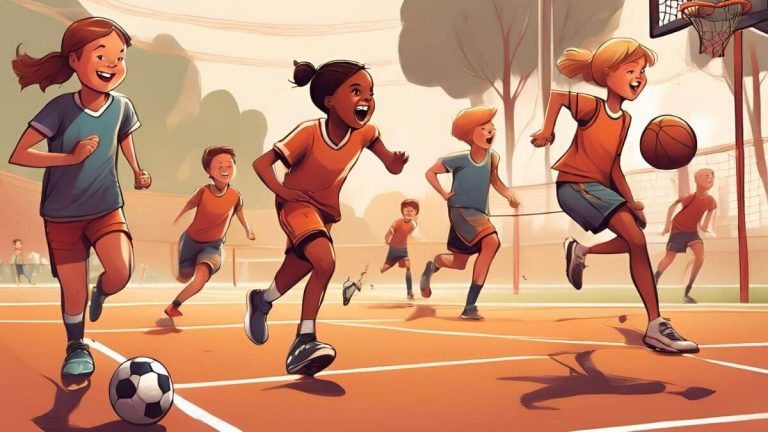The Importance of Physical Activity for Children’s Mental Health


In today’s world, where children are often glued to screens, promoting physical activity goes beyond just building strong bodies. Research increasingly shows a strong link between physical activity and mental health awareness in children. Encouraging healthy habits that incorporate movement can be a powerful tool for fostering emotional well-being.
Physical activity isn’t just about physical benefits. It has a profound impact on the brain, too. Exercise increases the production of endorphins, often referred to as “feel-good” chemicals. These endorphins elevate mood and reduce stress hormones, leading to a more positive outlook and better management of anxiety and depression.
Physical activity also improves sleep quality, which is crucial for mental health. When children are well-rested, they can concentrate better, regulate emotions more effectively, and have a more positive outlook.
Physical activity provides opportunities for children to develop a sense of accomplishment and mastery. Learning a new sport, participating in a team activity, or simply achieving a personal fitness goal can all boost self-esteem and confidence. This sense of accomplishment translates into other areas of life, giving children the resilience they need to cope with challenges.
Team sports and group activities add another layer of benefit. These activities foster social interaction and communication skills, which are essential for mental well-being. Teamwork teaches valuable lessons about cooperation, sportsmanship, and dealing with both victory and defeat. This can help children navigate social situations and build healthy relationships.
Physical activity has been shown to improve cognitive function, including memory, focus, and attention span. This is particularly beneficial for children with ADHD or other challenges with concentration. Regular exercise can help children stay on task in school and improve their overall academic performance.
The key to promoting physical activity in children is making it fun and engaging. Here are some ideas to get you started:
While encouraging physical activity is important, it’s also crucial to be aware of your child’s mental health. Here are some signs that your child might be struggling:
If you notice any of these signs, it’s important to reach out to a mental health professional for support.
Related Reading: Importance of Physical Activity
Physical activity is a vital component of a child’s overall well-being. By incorporating healthy habits that involve movement, we can help children develop a positive mind-body connection, build resilience, and foster a sense of well-being that extends far beyond the physical. So lace up those sneakers, head outside, and get moving together! Remember, small changes can make a big difference in your child’s physical and mental health.
Also Read: Role of Nutrition in Physical Health
References:

Get Your Resources to Your Email Now!